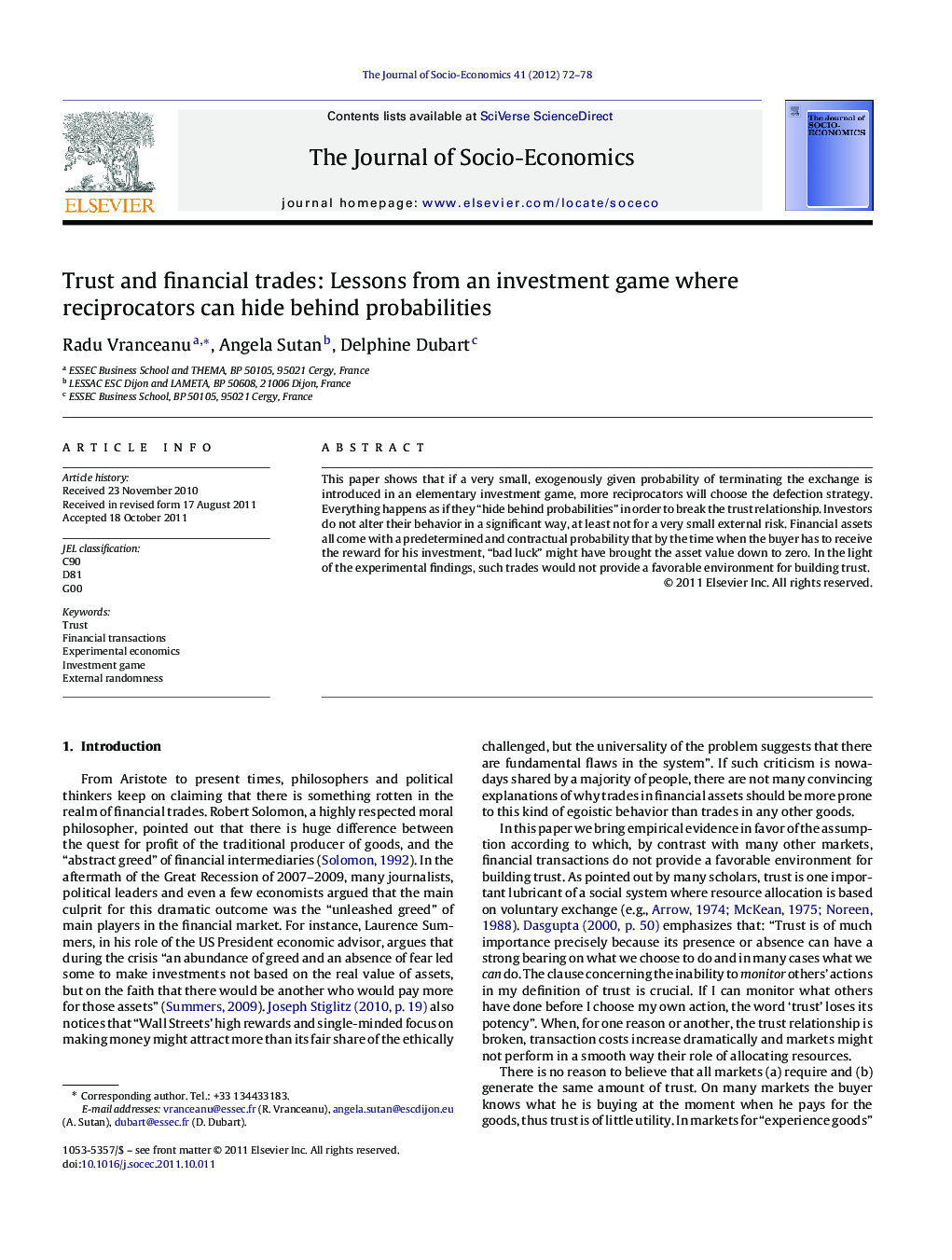| Article ID | Journal | Published Year | Pages | File Type |
|---|---|---|---|---|
| 971266 | The Journal of Socio-Economics | 2012 | 7 Pages |
This paper shows that if a very small, exogenously given probability of terminating the exchange is introduced in an elementary investment game, more reciprocators will choose the defection strategy. Everything happens as if they “hide behind probabilities” in order to break the trust relationship. Investors do not alter their behavior in a significant way, at least not for a very small external risk. Financial assets all come with a predetermined and contractual probability that by the time when the buyer has to receive the reward for his investment, “bad luck” might have brought the asset value down to zero. In the light of the experimental findings, such trades would not provide a favorable environment for building trust.
► We show that if a very small, exogenously given probability of terminating the exchange is introduced in an elementary investment game, more reciprocators will choose the defection strategy. ► Specifically, for an external risk of 1%, the frequency of reciprocators who defect rises from 47% to 68%. ► Investors do not alter their behavior in a significant way, at least not for a very small external risk. ► In the light of the experimental findings, trades in financial assets, involving an intrinsic risk of value destruction, do not provide a favorable environment for building trust.
